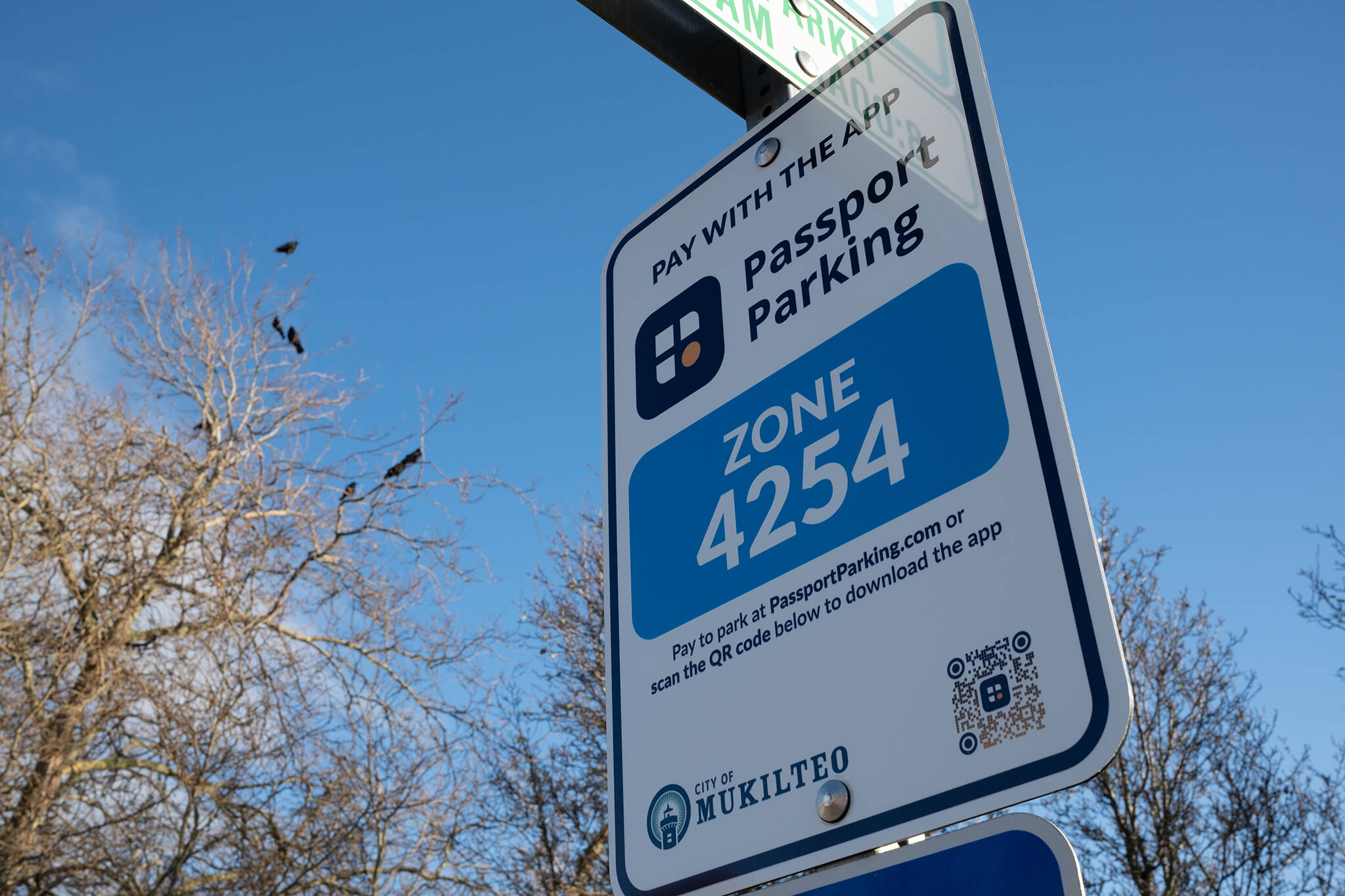EVERETT — The Edmonds City Council on Tuesday heard presentations on possible revenue generators, including paid parking, a business and occupation tax, and increased utility taxes.
The work session came after a $14.5 million property tax levy lid lift failed in this month’s election, with only 41% of votes in favor. Now, the city must pass a balanced budget without the levy revenue by the end of the year.
City Attorney Jeff Taraday presented options to increase utility taxes for next year. While some utilities are subject to a 6% cap, others — including water, sewer and stormwater — don’t have a limit. A 10% increase would amount to $26 added to residents’ bimonthly utility bills. Council President Neil Tibbott said the increase could be in effect for 18 months, which would result in between $3.5 million and $4 million in additional revenue for the city.
“I have asked the mayor to work with me and the finance department on what our cash flow will look like in the first quarter of the year,” Taraday said. “And as you know, the funding gap is quite significant. And so this is something that I want the council to consider very carefully in the next couple of weeks.”
The council directed Taraday to draft an utility tax increase ordinance for potential consideration at next week’s meeting.
While the increase wouldn’t have to go to the voters, it would be subject to a referendum. If Edmonds residents gathered enough signatures within a 30-day period, the increase could appear on the April ballot before the city would be allowed to implement it. Residents would need to gather about 4,800 signatures, or 15% of registered voters as of Nov. 4.
The council also heard presentations from members of the city’s economic development commission, who have been researching what it could look like to implement paid parking and a business and occupation tax in Edmonds.
Currently, most of the parking in downtown Edmonds is limited to two or three hours. But with the city down to one parking enforcement officer, the time limit isn’t often enforced, said Darroll Haug, a member of the economic development commission.
In December 2024, the City Council approved increases to the city’s parking permit prices. Residents, employees and visitors can buy permits that allow them to park in certain areas of the city’s downtown. The increases amount to an additional $67,380 per year, according to the commission’s presentation. The city has yet to implement the new prices.
In addition to raising permit costs, the group suggested the council look into paid parking downtown, either as a pilot program or a full rollout. Revenue from a pilot program would depend on a number of variables, including the number of stalls, hourly rate and number of hours per day that paid parking is in effect. A full paid parking program downtown could generate about $750,000 per year, according to the commission.
“Especially when our property tax structure is the way it is in the state of Washington, every city is looking for just that little bit extra that begins to add up with all the other little bits,” Tibbott said. “So I would be in favor of exploring some kind of pilot project for our city.”
The council could also decide to create paid parking exemptions for residents, commission members said. Most council members expressed interest in exploring paid parking further, at least for a pilot program.
“I hear comments, I read things that this is a done deal, and in no way is that the case,” council member Chris Eck said. “If anything, this discussion tonight highlights that we truly are looking at the very important research that the EDC has done, we’re looking at all the pros and cons, we’re looking at all the different ways we could potentially go about it if we do go about it.”
Other members of the commission spoke with 42 business owners in the city regarding a business and occupation tax. The tax would be limited to 0.2% and apply to businesses earning at least $20,000 in gross revenue. The tax would also be subject to a referendum, similar to the utility tax.
It’s hard to tell exactly how much revenue a business and occupation tax would bring in, Tatum said. The amount the city would collect is based on the amount of sales within city limits. The city won’t have that data unless it starts implementing the tax, Tatum said. He gave a rough estimate of $1.6 million.
“I want to caveat the heck out of that,” Tatum said. “Every city that we’ve talked to said it’s very, very difficult to impossible to predict the very precise range of tax until you start collecting it. So they were always very cautious in their computations.”
Business owners were “overwhelmingly against” the tax, the commission found, but would be more open to it if it came with improved engagement with the city. Some wanted to have a say in what the revenue would go toward.
“What we heard loud and clear is that the business community wants meaningful engagement and planning and decision making,” said Natalie Seitz, a member of the economic development commission. “They suggested educational workshops and support for employees.”
Tibbott said he would appoint two council members to follow up with the commission to further discuss the business and occupation tax. Council members expressed their appreciation for the city’s business owners.
“The strength of our business district down here in town is one that you won’t find anywhere else,” council President Pro Tem Susan Paine said. “The business owners do have that secret sauce, they know how to put it all together, and they’re doing it, and they’re making their businesses really vibrant.”
Jenna Peterson: 425-339-3486; jenna.peterson@heraldnet.com; X: @jennarpetersonn.
Talk to us
> Give us your news tips.
> Send us a letter to the editor.
> More Herald contact information.

























